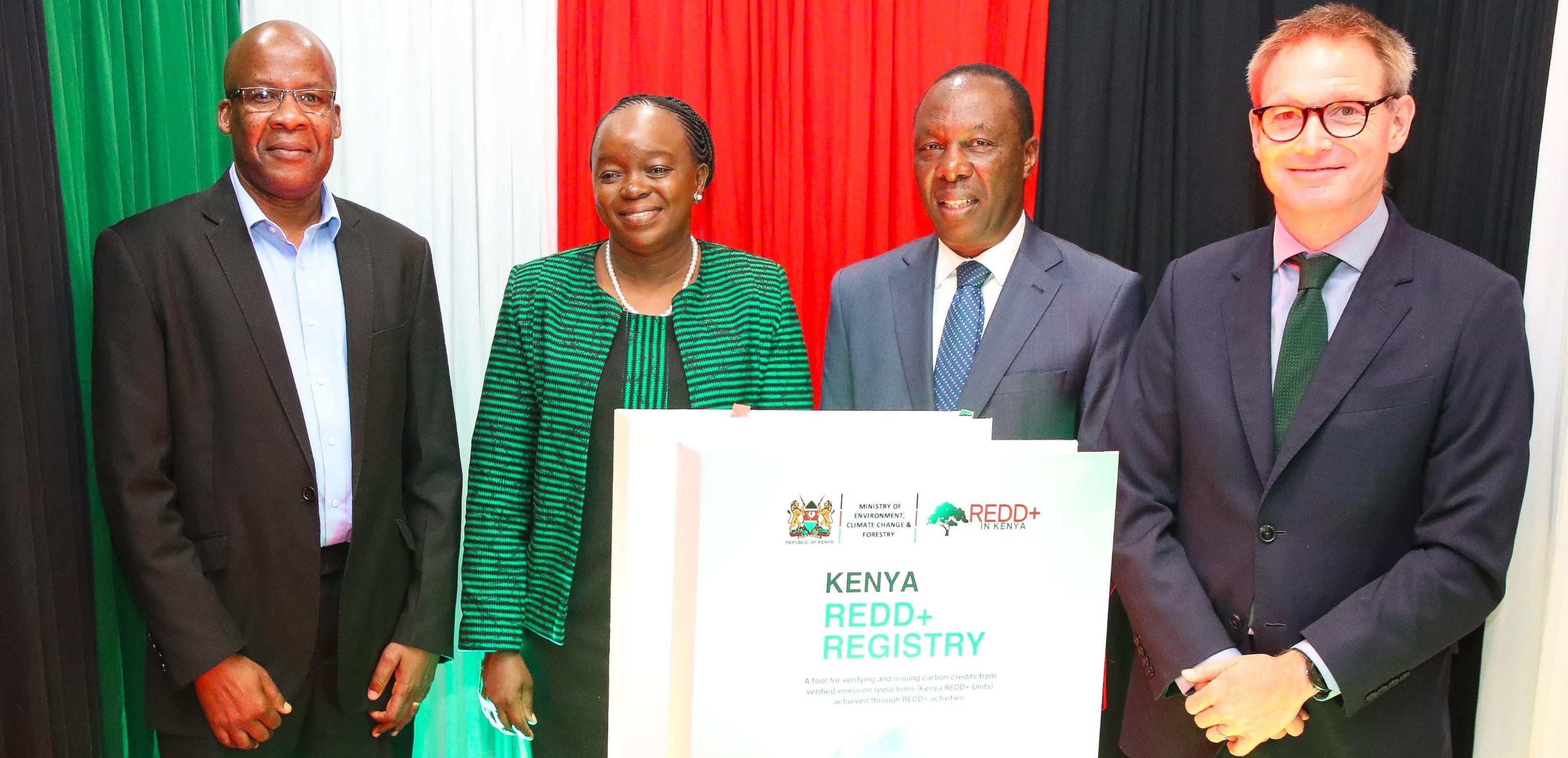

In a historic move coinciding with World Conservation Day, Kenya has officially launched Africa’s first-ever REDD+ Registry, alongside the Kenya REDD+ Nesting Guidelines, cementing its leadership in forest-based climate mitigation efforts.
The launch, held in partnership with the UK Government and Conservation International, marks a significant step in strengthening transparency, accountability, and environmental integrity in carbon markets.
Environment, Climate Change & Forestry Cabinet Secretary Deborah Barasa said the twin launch signifies a pivotal step in strengthening forest governance and unlocking climate finance.
Barasa noted that the tools reflect Kenya’s commitment to people-centered conservation.
The REDD+ Registry is a digital platform designed to track, verify, and manage emissions reductions from activities aimed at reducing deforestation and forest degradation across Kenya.
The registry, developed under the UK PACT (Partnering for Accelerated Climate Transitions) programme with technical support from Conservation International, is the first of its kind in Africa and only the second in the world.
It will align with the Climate Change (Amendment) Act, 2023 and the Carbon Market Regulations, 2024, and integrate into Kenya’s forthcoming National Carbon Registry.
British High Commissioner Neil Wigan OBE lauded the move as “a powerful symbol” of the Kenya-UK Strategic Partnership, noting that climate and nature are among its four core priorities.
“This registry is a powerful symbol of that partnership. It strengthens Kenya’s leadership in carbon markets and supports our shared goal of enabling people and nature to thrive together,” the CS said.
Managing Director of Conservation International – East Africa Seif Hamisi, hailed the registry as a unique opportunity for Kenya to move REDD+ implementation forward with greater transparency and accountability.
“The REDD+ Registry provides a unique opportunity for the country to move REDD+ implementation in Kenya forward,” Hamisi said.
The REDD+ Nesting Guidelines will serve as a national framework for integrating site-level and jurisdictional REDD+ activities, supporting equitable benefit-sharing for forest communities and Indigenous Peoples.
For an initial two years, the UK will host the registry while Kenya builds local infrastructure to manage it.
Key beneficiaries include the Ministry, Kenya Forest Service, conservancies, Indigenous Peoples’ Organisations, and Community Forest Associations.












